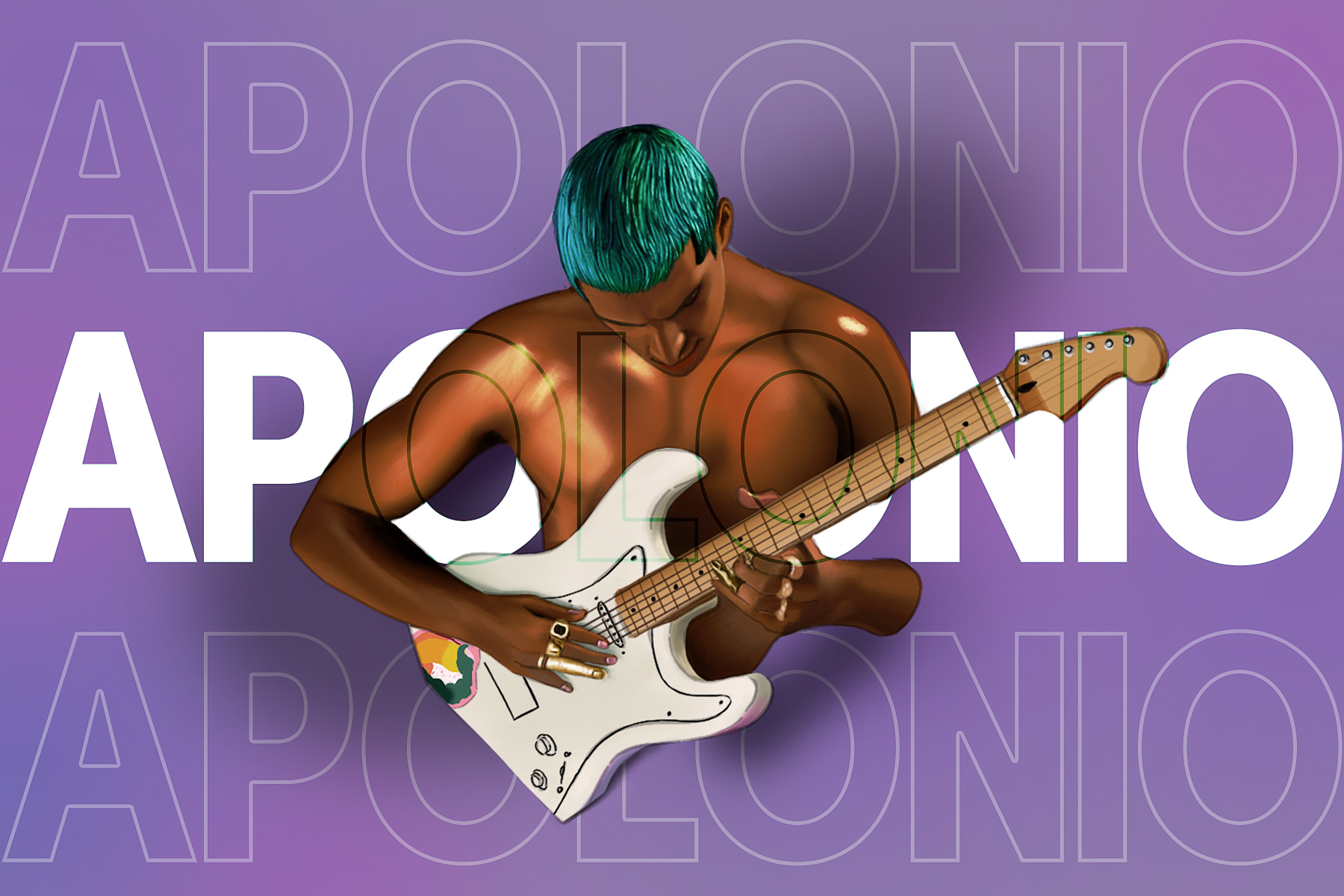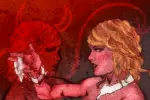Omar Apollo released his first full album, “Apolonio,” last week. He created the entire project during quarantine, and the result is a dreamy, vintage-inspired soundtrack. The album’s tender lyrics and Omar’s crooning create an ecosystem of soul, funk, rock and hip-hop.
The artist grew up in Hobart, Indiana, the son of two immigrants from Guadalajara, Mexico. Apollo’s music is influenced by artists from a wide range of genres, including Neil Young, Prince and The Internet; Prince references flit throughout “Apolonio.” Fittingly, he played in Paisley Park, Prince’s home, in late October.
Apollo started on SoundCloud and blew up when his friend lent him $30 to upload a track onto Spotify. He released two EPs prior to “Apolonio”: “Stereo” (2018) and “Friends” (2019). “Stereo” was a short, focused album of mostly bedroom pop sounds. “Friends” was a more ambitious EP, exploring more upbeat genres while continuing the self-reflection he first grew famous for. In the nine-track “Apolonio,” Apollo explores love and his background, immersing listeners fully in his world.
The album begins with “I’m Amazing,” a lo-fi track that places the listener within Apollo’s new frame of mind since he last released music. Despite his notoriety, Apollo aims to remain relatable to the listener. Switching between Spanish and English, he sings both about remaining humble and wishing for an old lover. He memorably melds both themes in the line “When I needed money that I could borrow / Pick you up, then have a show up in Chicago.” This track is also the only one that references quarantine, albeit obliquely; he sings, “Since I was eighteen, I’ve had my mask off.”
In the next song, “Kamikaze,” he again sings about an old romance. However, despite the sadness, the song has more energy than a lot of Apollo’s work. The artist said about the track, “When I made ‘Kamikaze’ I was reminiscing on how I used to feel for someone and realizing those feelings are lost and we’re left with nothing. It feels good to hold on to the memories without the feelings it gave me.” The song’s music video was shot in a rural area, most likely referencing his hometown. Apollo flashes back and forth between being alone and smiling with others.
“Want U Around (feat. Ruel)” is a return to his SoundCloud crooning days. The Australian artist Ruel is mostly in the background, harmonizing with Apollo, creating a narrative where both want the other but think their interest isn’t returned.
“Stayback” is a standout track. A funky, unusual guitar solo plays throughout. Apollo sings about trying to move on from someone he’s crushed on for a long time. The music video is devastatingly sweet. Apollo gazes longingly at a boy whose arms envelop a girl. Worse, the boy looks back at him, knowing how strongly Apollo is crushing on him. The lyrics reflect the difficulty of being queer and loving someone who will never love you back. He imagines a different future for himself, singing “If I could switch bodies, you know I’d change that, change that.”
The next song, “Hey Boy (feat. Kali Uchis),” feels more like an interlude than a song. The beginning is strong, but it fades quickly. It’s a pity he couldn’t do more with Colombian American Kali Uchis, another genre-defying artist like himself. Instead, the song is not even two minutes long.
“Dos Uno Nueve” is different sonically from the rest of “Apolonio.” The more electronic instrumentation is gone, and he’s backed by members of the LA Philharmonic playing a corrido — the first time the Philharmonic has played one. The change is welcome; the strumming music calls to his Mexican heritage, and it mixes up an album that was almost becoming repetitive. He also reverses the languages: in this song, he sings mostly in Spanish, with only a few phrases of English thrown in.
The divergence in instrumentation also marks a thematic change in the lyrics. Instead of failed love, he sings about how his life has changed since he’s gotten famous. “Dos Uno Nueve” (“Two One Nine”) is a reference to Hobart, Indiana’s area code. At the beginning of the track, he sings about his childhood. He references food insecurity with the lyric, “No se me an borrado las veces que no teníamos pa comer” (“The times that we didn’t have anything to eat haven’t been erased”). He then goes on to gloat about how much money he spends now, referencing Dolce & Gabbana and Balenciaga. He sings that he earns it and wants to earn more money. Apollo’s reflection on his background and his flagrant display of consumerism is unlike his other, more relatable music.
The follow-up, “Useless,” again strays from his bedroom pop roots. Albert Hammond Jr. of The Strokes plays guitar throughout the track, giving it an alternative rock feel. The textured guitar riffs add an unusual dimension to the lyrics. The lyric “’Cause I’m useless when you’re stuck in my mind” seems dejected standing on its own. Paired with the song’s tempo, however, Apollo appears to be joyful that someone else can have positive power over his thoughts. He’s happy in love.
In the hip-hop influenced “Bi Fren,” Apollo references his sexuality and sings about letting someone go who wasn’t interested in him. He also speaks about how his sexuality has affected his life, singing “No boys allowed, sleep on the couch,” and “Oh, boy, you should go to hell.”
The album ends on a hopeful note with “The Two Of Us.” Throughout the album, Apollo has struggled with love and lamented its power over him. Here, he sings exuberantly about feeling “young and in love.”
In “Apolonio,” it’s clear Apollo has grown from his guitar SoundCloud days. He showcases a powerful understanding of various genres and of himself; Apollo has obliquely referred to his bisexuality in the past, but he explicitly sings about it in “Apolonio” alongside references to his Indianan upbringing sung in Spanish. The album is a genre-bending musical triumph.

















